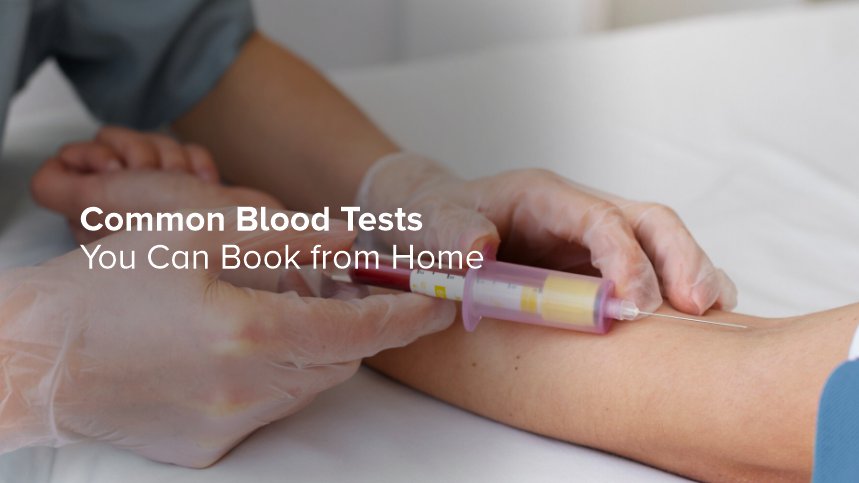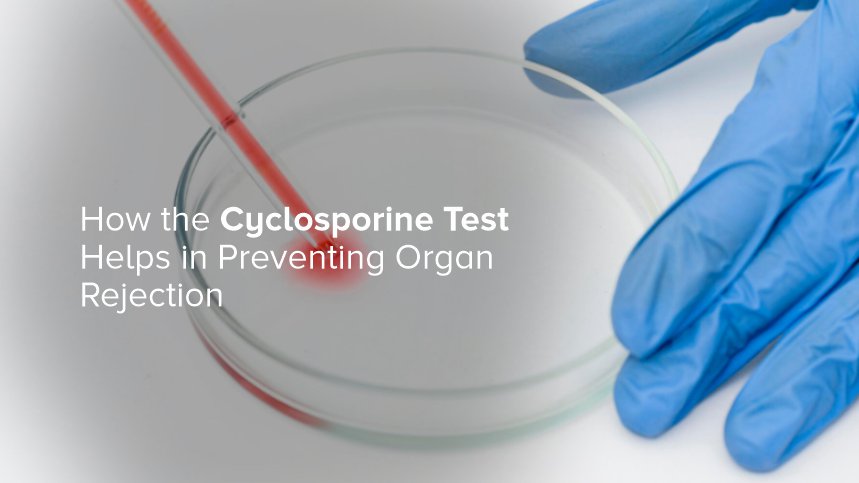


Condition
- Top tests
- Top tests
- Top tests
- Top tests
- Top tests
- Top tests
- Top tests
- Top tests
- Top tests
- Preventive Health Checkup
- Top tests
- Top tests
- Top tests
- Top tests
- Blood Banking & Transfusion
- Lifestyle Packages
- Blood Banking & Transfusion
- Blood Banking & Transfusion
- Top tests
- Top tests
- Lifestyle Packages
- Diabetes
- Blood Banking & Transfusion
- Blood Banking & Transfusion
- Blood Banking & Transfusion
- Blood Banking & Transfusion
- Blood Banking & Transfusion
- Others
- Others
- Others
- Others
- Blood Banking & Transfusion
- Blood Banking & Transfusion
- Blood Banking & Transfusion
- Blood Banking & Transfusion
- Vitamin Deficiency
- Vitamin Deficiency
- Vitamin Deficiency
- Vitamin Deficiency
- Vitamin Deficiency
- Blood Banking & Transfusion
- Blood Banking & Transfusion
- Blood Banking & Transfusion
- Blood Banking & Transfusion
- Diabetes
- Diabetes
- Heart Disease & Hypertension
- Preventive Health Checkup
- Diabetes
- Preventive Health Checkup
- Preventive Health Checkup
- Diabetes
- Diabetes
- Heart Disease & Hypertension
- Top tests
- Heart Disease & Hypertension
- Diabetes
- Top tests
- Diabetes
- Heart Disease & Hypertension
- Lifestyle Packages
- Heart Disease & Hypertension
- Lifestyle Packages
- Heart Disease & Hypertension
- Heart Disease & Hypertension
- Lifestyle Packages
- Preventive Health Checkup
- Preventive Health Checkup
- Top tests
- Preventive Health Checkup
- Heart Disease & Hypertension
- Heart Disease & Hypertension
- Heart Disease & Hypertension
- Top tests
- Top tests
- Lifestyle Packages
- Heart Disease & Hypertension
- Heart Disease & Hypertension
- Top tests
- Heart Disease & Hypertension
- Preventive Health Checkup
- Diabetes
- Lifestyle Packages
- Heart Disease & Hypertension
- Top tests
- Heart Disease & Hypertension
- Heart Disease & Hypertension
- Diabetes
- Lifestyle Packages
- Preventive Health Checkup
- Diabetes
- Top tests
- Diabetes
- Allergy
- Heart Disease & Hypertension
- Diabetes
- Heart Disease & Hypertension
- Diabetes
- Lifestyle Packages
- Lifestyle Packages
- Top tests
- Preventive Health Checkup
- Lifestyle Packages
- Preventive Health Checkup
- Preventive Health Checkup
- Diabetes
- Top tests
- Heart Disease & Hypertension
- Preventive Health Checkup
- Top tests
- Heart Disease & Hypertension
- Lifestyle Packages
- Lifestyle Packages
- Diabetes
- Preventive Health Checkup
- Top tests
- Diabetes
- Top tests
- Preventive Health Checkup
- Preventive Health Checkup
- Preventive Health Checkup
- Diabetes
- Lifestyle Packages
- Lifestyle Packages
- Heart Disease & Hypertension
- Lifestyle Packages
- Heart Disease & Hypertension
- Lifestyle Packages
- Preventive Health Checkup
- Preventive Health Checkup
- Preventive Health Checkup
- Lifestyle Packages
- Top tests
- Lifestyle Packages
- Top tests
- Lifestyle Packages
- Top tests
- Diabetes
- Diabetes
- Others
- Blood Disorders
- Top tests
- Others
- Others
- Others
- Fever
- Fever
- Blood Disorders
- Blood Disorders
- Preventive Health Checkup
- Preventive Health Checkup
- Profile
- Kidney Disease
- Kidney Disease
- Diabetes
- Diabetes
- Heart Disease & Hypertension
- Preventive Health Checkup
- Lifestyle Packages
- Thyroid Disorder
- Diabetes
- Diabetes
- Diabetes
- Diabetes
- Diabetes
- Diabetes
- Diabetes
- Top tests
- Allergy
- Top tests
- Top tests
- Top tests
- Top tests
- Diabetes
- Top tests
- Diabetes
- Top tests
- Top tests
- Top tests
- Liver Disease
- Diabetes
- Top tests
- Vitamin Deficiency
- Top tests
- Top tests
- Liver Disease
- Top tests
- Top tests
- Top tests
- Anemia
- Anemia
- Anemia
- Diabetes
- Diabetes
- Anemia
- Top tests
- Top tests
- Top tests
- Preventive Health Checkup
- Thyroid Disorder
- Heart Disease & Hypertension
- Top tests
- Preventive Health Checkup
- Diabetes
- Heart Disease & Hypertension
- Top tests
- Fever
- Allergy
- Liver Disease
- Lifestyle Packages
- Heart Disease & Hypertension
- Top tests
- Arthritis
- Top tests
- Top tests
- Heart Disease & Hypertension
- Kidney Disease
- Preventive Health Checkup
- Allergy
- Top tests
- Lifestyle Packages
- Top tests
- Kidney Disease
- Top tests
- Lifestyle Packages
- Top tests
- Preventive Health Checkup
- Preventive Health Checkup
- Top tests
- Top tests
- Vitamin Deficiency
- Allergy
- Diabetes
- Top tests
- Top tests
- Top tests
- Top tests
- Heart Disease & Hypertension
- Allergy
- Top tests
- Preventive Health Checkup
- Top tests
- Top tests
- Infertility
- Top tests
- Lifestyle Packages
- Allergy
- Diabetes
- Heart Disease & Hypertension
- Lifestyle Packages
- Preventive Health Checkup
- Preventive Health Checkup
- Top tests
- Preventive Health Checkup
- Top tests
- Diabetes
- Top tests
- Infertility
- Top tests
- Thyroid Disorder
- Top tests
- Allergy
- Preventive Health Checkup
- Vitamin Deficiency
- Top tests
- Top tests
- Infertility
- Lifestyle Packages
- Diabetes
- Liver Disease
- Kidney Disease
- Vitamin Deficiency
- Top tests
- Heart Disease & Hypertension
- Heart Disease & Hypertension
- Top tests
- Heart Disease & Hypertension
- Heart Disease & Hypertension
- Heart Disease & Hypertension
- Infertility
- Heart Disease & Hypertension
- Vitamin Deficiency
- Vitamin Deficiency
- Arthritis
- Arthritis
- Top tests
- Top tests
- Lifestyle Packages
- Preventive Health Checkup
- Lifestyle Packages
- Preventive Health Checkup
- Vitamin Deficiency
- Top tests
- Lifestyle Packages
- Lifestyle Packages
- Preventive Health Checkup
- Top tests
- Preventive Health Checkup
- Top tests
- Heart Disease & Hypertension
- Infertility
- Top tests
- Top tests
- Preventive Health Checkup
- Lifestyle Packages
- Top tests
- PCOD
- Preventive Health Checkup
- Lifestyle Packages
- Preventive Health Checkup
- Top tests
- Fever
- PCOD
- Kidney Disease
- Top tests
- Top tests
- Preventive Health Checkup
- Preventive Health Checkup
- Liver Disease
- Thyroid Disorder
- Top tests
- Heart Disease & Hypertension
- PCOD
- Top tests
- Arthritis
- Preventive Health Checkup
- Kidney Disease
- Lifestyle Packages
- Top tests
- Allergy
- Top tests
- Top tests
- Diabetes
- Thyroid Disorder
- Preventive Health Checkup
- Top tests
- Lifestyle Packages
- Preventive Health Checkup
- Top tests
- Kidney Disease
- Liver Disease
- Infertility
- Top tests
- Anemia
- Top tests
- Top tests
- Top tests
- Preventive Health Checkup
- Bone Health
- Cancer
- Fatty Liver

Tests
When it comes to your health, few hormones wield as much influence as cortisol. Often referred to as the "stress hormone," cortisol plays a vital role in managing several essential functions in the body. But what happens when your cortisol levels are too high or too low? And what might these levels be saying about your overall health?
What Is Cortisol and Why Is It Important?
Cortisol is a steroid hormone produced by your adrenal glands. It’s part of the hypothalamic-pituitary-adrenal (HPA) axis and is released in response to stress and low blood glucose levels. While its most familiar association is with stress, cortisol performs many other essential roles, including:
- Regulating metabolism
- Reducing inflammation
- Controlling blood sugar levels
- Assisting in memory formation
Cortisol follows a natural rhythm, reaching its highest levels in the morning (to help you wake up and start your day) and dipping in the evening to assist with sleep. This cyclical pattern plays a crucial role in maintaining your physical and mental well-being.
Signs and Symptoms of High Cortisol
A spike in cortisol levels is a normal response to stress or danger (think of the "fight or flight" mechanism). However, prolonged periods of elevated cortisol can have significant consequences. Below are common signs of high cortisol (also known as hypercortisolism):
Key Symptoms:
- Weight Gain (Especially Around the Abdomen): Excess cortisol can lead to fat storage, particularly in the midsection.
- Chronic Fatigue: Despite high levels of stress hormones, individuals with elevated cortisol often feel persistently tired.
- Anxiety and Mood Swings: High cortisol influences brain function, potentially leading to heightened anxiety or irritability.
- Insomnia: Difficulty falling or staying asleep can result from continued cortisol elevation.
- Weakened Immune Function: High cortisol suppresses immune function, increasing susceptibility to infections.
- Skin Thinning and Stretch Marks: Prolonged exposure to cortisol may affect skin health, leading to thinning and stretch marks.
Causes of High Cortisol:
- Chronic stress
- Certain medications (e.g., corticosteroids)
- Cushing’s syndrome (a rare disorder causing excessive cortisol in the body)
- Sleep deprivation
- Underlying conditions like tumors in the adrenal or pituitary glands
Signs and Symptoms of Low Cortisol
Low cortisol (hypocortisolism) can be equally concerning. When cortisol levels are too low, the body struggles to maintain balance and respond to stress effectively. Below are symptoms often linked with low cortisol levels:
Key Symptoms:
- Fatigue and Weakness: Consistent tiredness, even after getting sufficient rest.
- Weight Loss and Reduced Appetite: Low cortisol impacts metabolism, resulting in unintentional weight loss.
- Low Blood Pressure: Hypocortisolism can lead to dizziness or lightheadedness due to reduced blood pressure.
- Salt Cravings: The body may crave salt as a way to stabilize electrolyte imbalances.
- Muscle Weakness: Decreased cortisol reduces energy availability for muscles, leading to weakness.
- Darkening of Skin (Hyperpigmentation): A possible symptom of adrenal insufficiency, particularly in areas exposed to friction.
Causes of Low Cortisol:
- Addison’s disease (a condition where the adrenal gland fails to produce adequate cortisol)
- Adrenal fatigue (a debated condition often attributed to chronic stress)
- Damage to the adrenal glands (due to infections or autoimmune diseases)
- Pituitary gland disorders (such as secondary adrenal insufficiency)
Diagnosing Cortisol Imbalances
Recognizing symptoms is the first step, but laboratory testing is essential to confirm any cortisol imbalances. Common diagnostic tests include:
- Blood Tests: Measures cortisol levels at specific times of the day.
- Saliva Tests: Tracks cortisol rhythm by measuring levels at multiple intervals throughout the day.
- Urine Tests: Detects total cortisol output over 24 hours.
- ACTH Stimulation Test: Evaluates how well your adrenal glands respond to adrenal corticotropic hormone (ACTH).
Addressing High Cortisol
The treatment for high cortisol typically involves addressing the root cause. Here are actionable approaches:
- Stress Management Techniques: Practices like mindfulness, meditation, or yoga can lower cortisol levels.
- Balanced Diet: Foods rich in omega-3s, potassium, and magnesium (e.g., salmon, avocados, leafy greens) can naturally support hormone balance.
- Quality Sleep: Aim for 7–9 hours of uninterrupted sleep to allow cortisol levels to reset.
- Physical Activity: Moderate exercise can help regulate stress hormone levels (avoid overtraining, which can elevate cortisol further).
- Medical Intervention: For severe cases like Cushing’s syndrome, medical treatments, including surgery or inhibitors, may be required.
Addressing Low Cortisol
Managing low cortisol often requires more targeted intervention, as it may be related to underlying adrenal or pituitary dysfunction. Key approaches include:
- Hormone Replacement Therapy: Corticosteroid medications are often prescribed to restore cortisol levels in individuals with adrenal insufficiency.
- Electrolyte Management: Staying hydrated and consuming proper amounts of sodium can stabilize blood pressure and energy.
- Stress Management: While the focus in these cases is not lowering stress, calming techniques can improve overall adrenal function.
- Lifestyle Adjustments: Optimizing sleep, reducing exposure to toxins, and supporting the adrenals with a nutrient-dense diet can all contribute to recovery.
When to See a Healthcare Professional
Cortisol imbalances, whether high or low, require attention. If you notice persistent fatigue, dramatic weight changes, or struggles with stress that disrupt daily life, consult your healthcare provider. Accurate diagnosis and tailored treatment are essential for restoring balance.
Trust Ampath Labs for Reliable Cortisol Testing
If you’re concerned about your cortisol levels and want to take control of your health, Ampath Labs is here to help. With state-of-the-art diagnostic services, Ampath Labs offers reliable cortisol testing tailored to deliver precise and timely results. Backed by certified professionals and advanced technology, we ensure every result empowers you with the information you need for better health. Trust Ampath Labs to be your partner in proactive healthcare.
WANT TO BOOK HEALTH CHECKUP ?
Categories
Top tests
100
Preventive Health Checkup
46
Blood Banking & Transfusion
16
Lifestyle Packages
35
Diabetes
40
Others
8
Vitamin Deficiency
12
Heart Disease & Hypertension
37
Allergy
9
Blood Disorders
3
Fever
4
Profile
1
Kidney Disease
8
Thyroid Disorder
5
Liver Disease
6
Anemia
5
Arthritis
4
Infertility
6
PCOD
3
Bone Health
1
Cancer
1
Fatty Liver
1
Recent Blogs
Why Blood Tests at Home Are Just as Accurate as Lab Visits
The healthcare landscape has transformed significantly with the introduction of at-home...
03-09-2025
Common Blood Tests You Can Book from Home
Monitoring your health has never been more accessible. With advances in diagnostic technology...
03-09-2025
How the Cyclosporine Test Helps in Preventing Organ Rejection
Organ transplant recipients face a delicate balancing act that continues long after their...
03-09-2025







